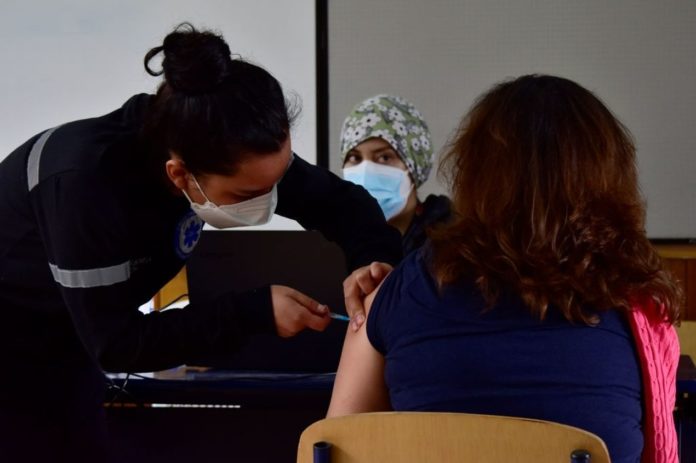The Delta variant of COVID-19 decimated several parts of the planet just as the dust settled after the pandemic’s first wave. It has proven to be significantly more transmissible than its predecessor, undermining some of the vaccine’s protection.
However, Immunologist Professor Doctor Sai Reddy believes that this could be a dress rehearsal for something far worse to come.
In a call to arms, professor Reddy stated that we “have to prepare” for a new emerging variety in 2022 that could represent a “big risk.”
He explained that it was “inevitable” that present mutations will mix to form a strain more lethal.
Prof Reddy said:
“Covid-22 could get worse than what we are witnessing now.
“If such a variant appears, we have to recognise it as early as possible and the vaccine manufacturers have to adapt the vaccine quickly.
“The emergence of this new variant is a big risk. We have to prepare for it.”
In an interview with the German tabloid Blick, he issued this warning.
According to Prof Reddy, the Delta variation is the most contagious virus the world has had to deal with thus far.
However, it lacks “escape mutations,” which are genetic traits that let it evade the immune system.
Escape mutations, as shown in some variants such as Beta, reduce some of the vaccine’s efficacy, necessitating further modifications.
Prof Reddy believes that a mix of these factors – whether more lethal, transmissible or immune evading – might be a devastating cocktail that halts part of the world’s progress.
He said:
“It is the next phase of the pandemic when Beta or Gamma become more infectious or Delta develops escape mutations. That will be the big problem for the coming year.”
It comes amid mounting evidence that suggests protection from the current crop of vaccines authorised in the US wanes over time.
The latest data coming from the UK’s ZOE Symptom Study App, which has monitored the impact of the vaccines on over a million users, shows declining protection in the months following the second jab.
Protection seems to drop off quite dramatically at around four months.
Although as Professor Tim Spector, lead scientist on the ZOE Symptom Study App, cautioned, the data is limited.
Nonetheless, “for both vaccines, the prevention of infection is waning over time”, he warned.
Prof Spector was referring to both the AstraZeneca and Pfizer vaccines.
It is important to note that the benefits of getting vaccinated still far outweigh the risks posed by not getting vaccinated.
By reducing the initial severity of the disease, the vaccines greatly reduce the risk of hospitalisation and death.
What’s more, the threat of long Covid is grave if you haven’t primed your immune system to fight COVID-19.
Photo by Franklin Jacome/Agencia Press South/Getty Images
